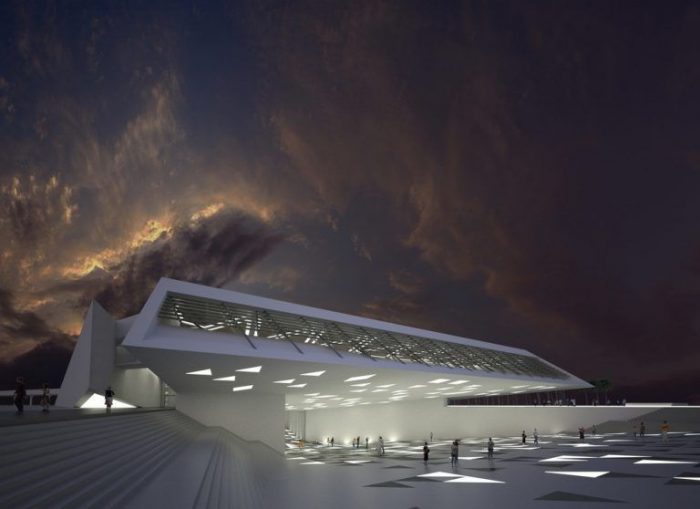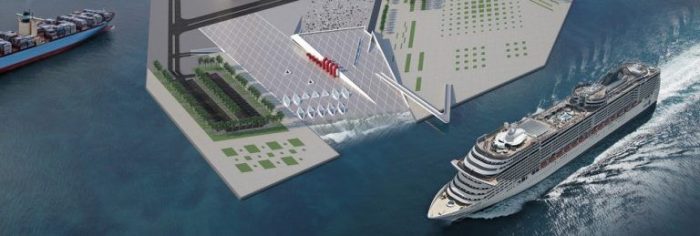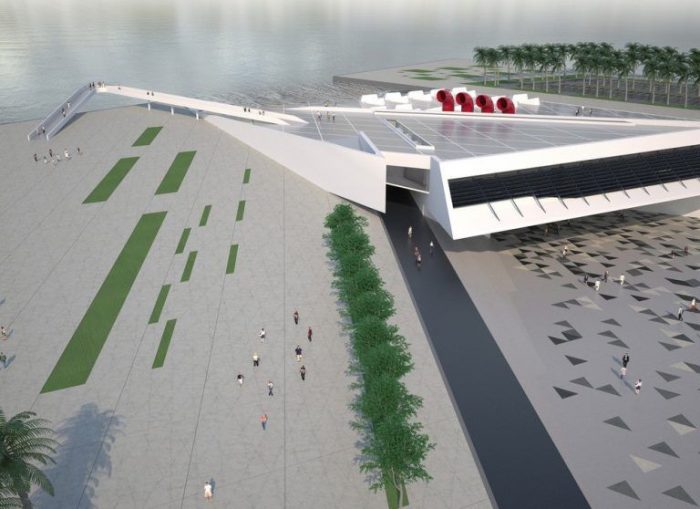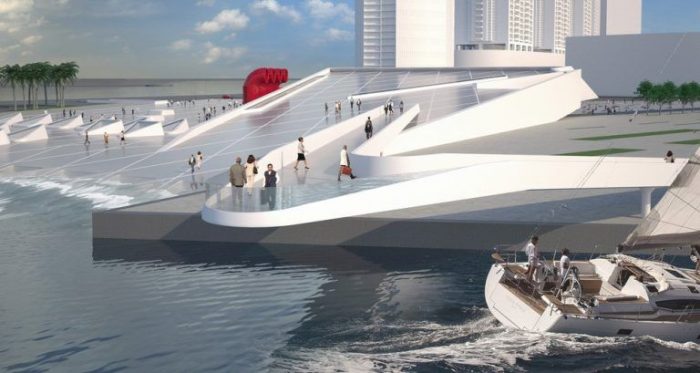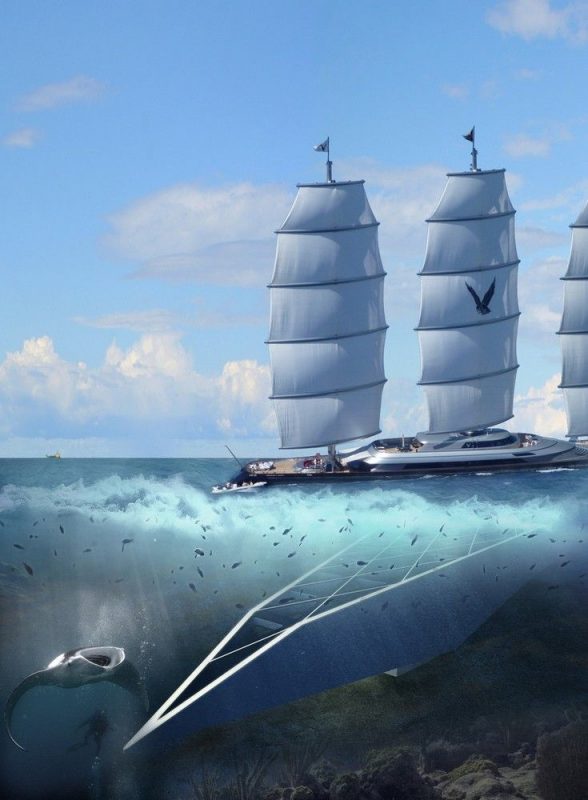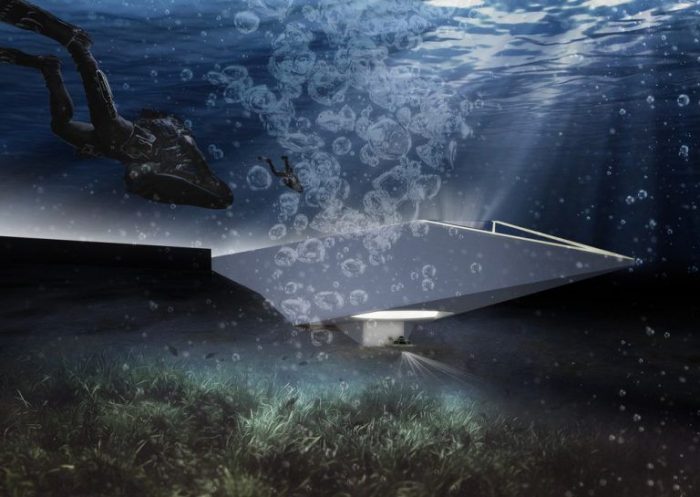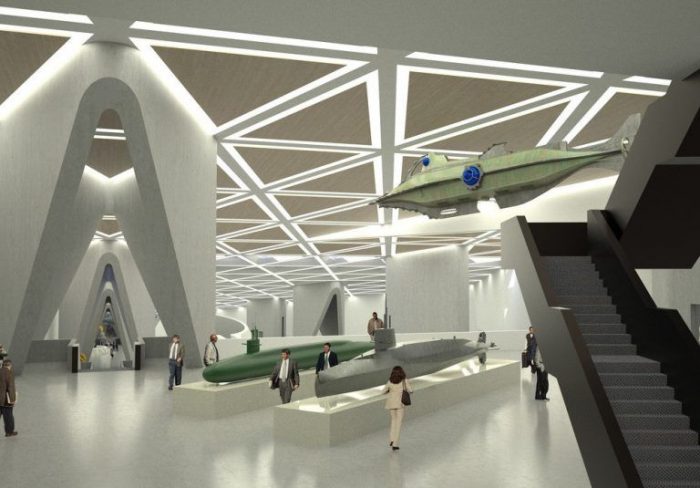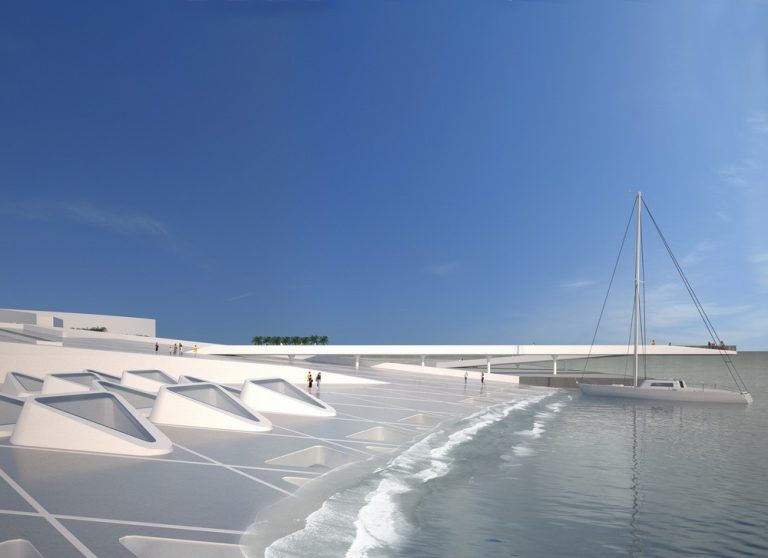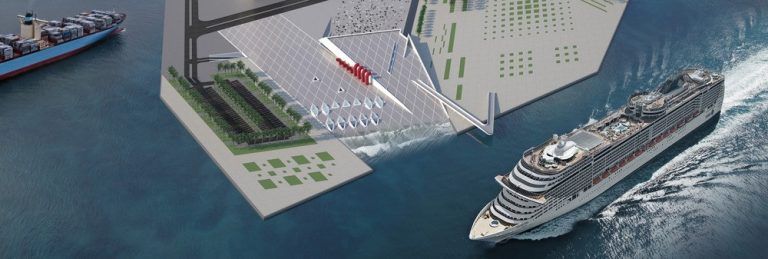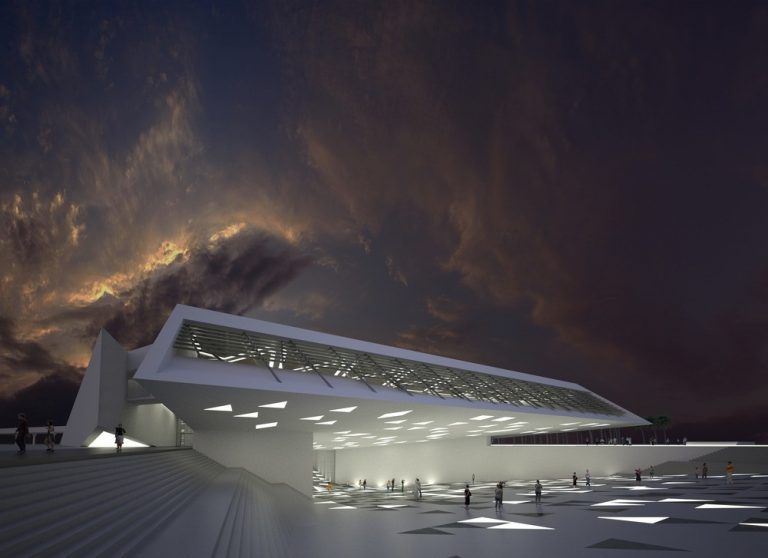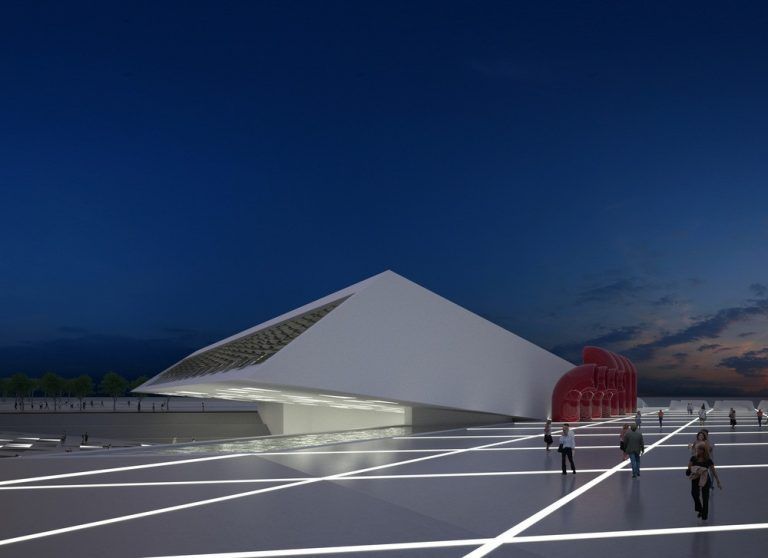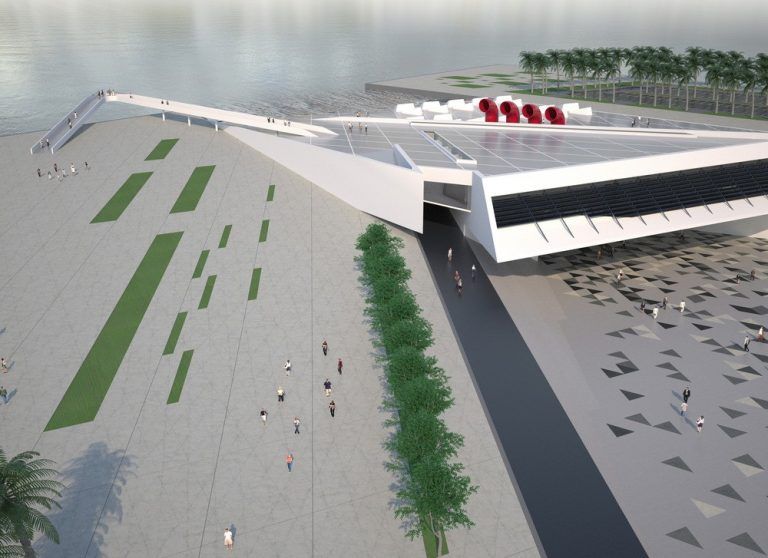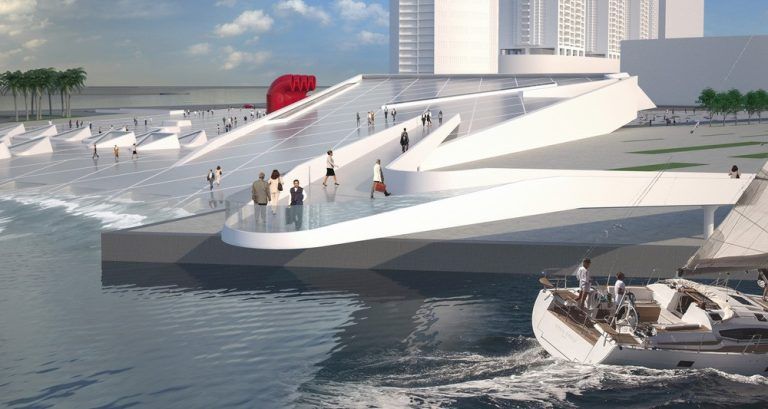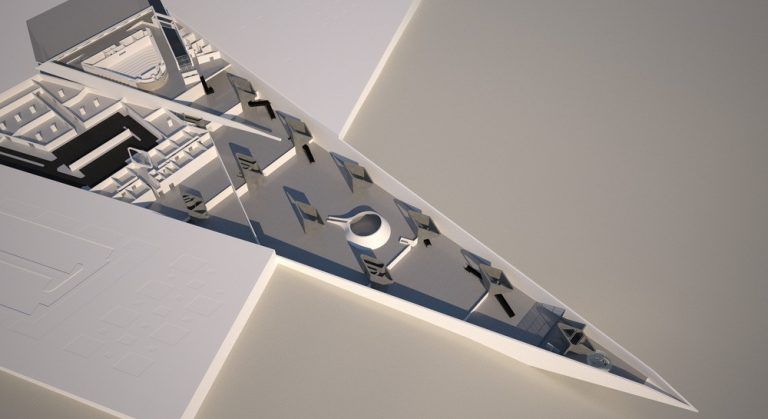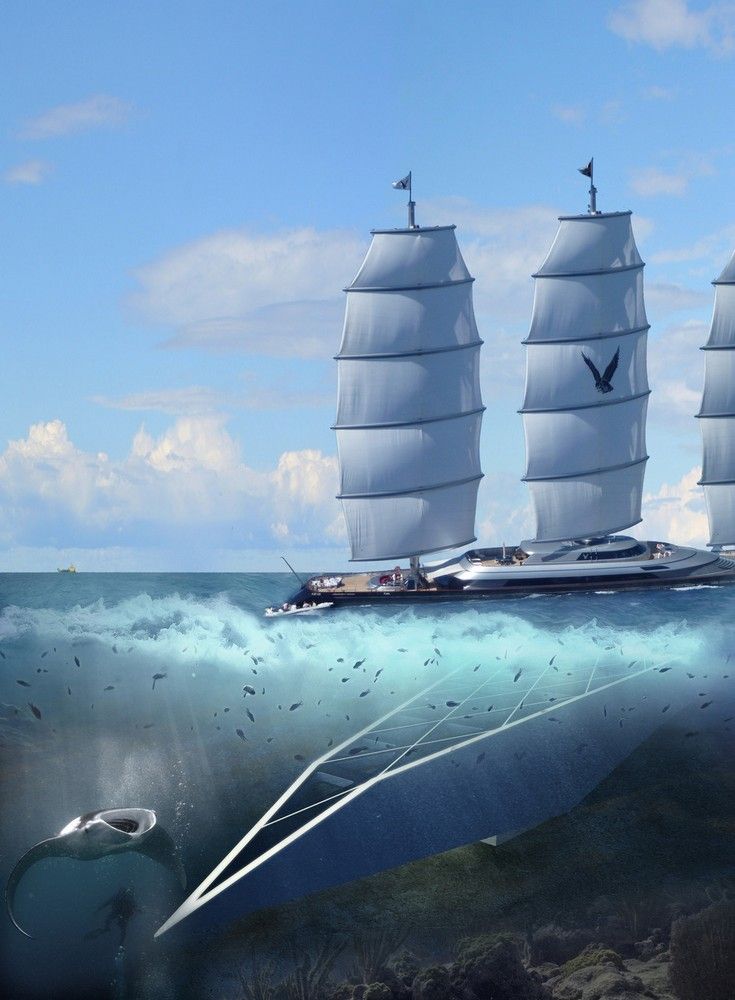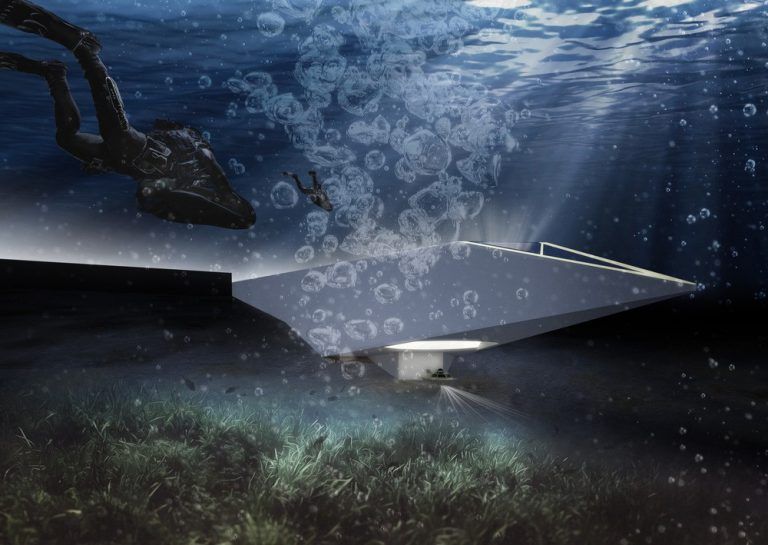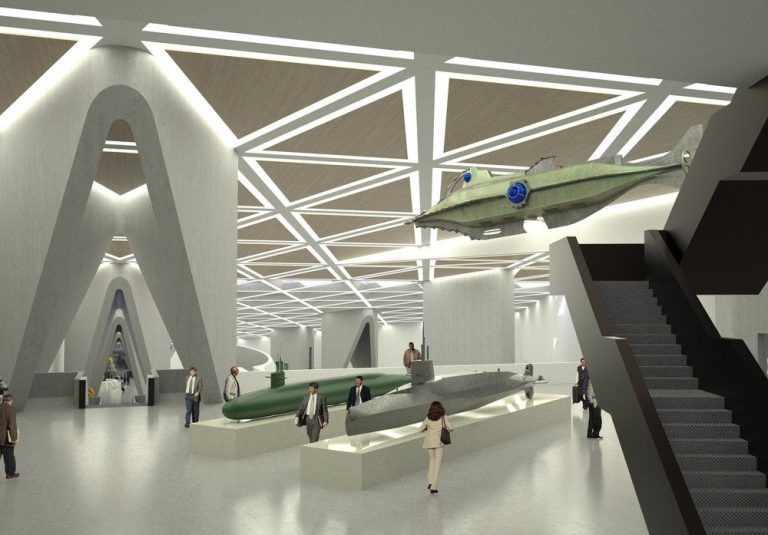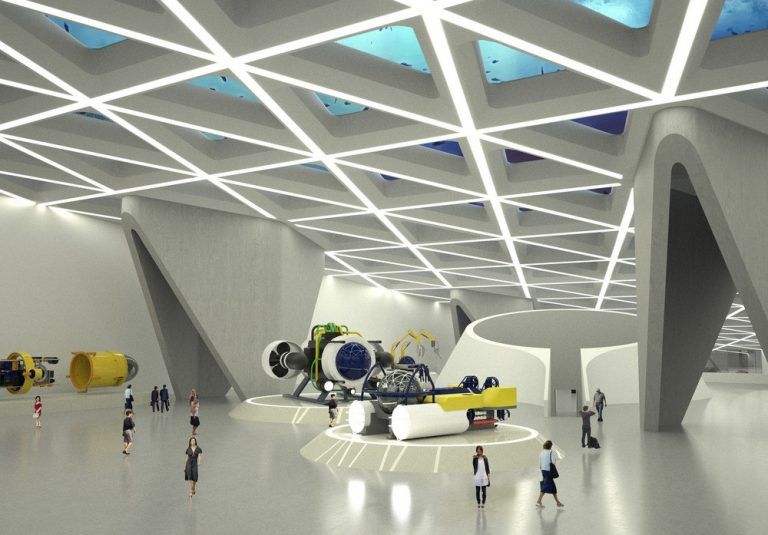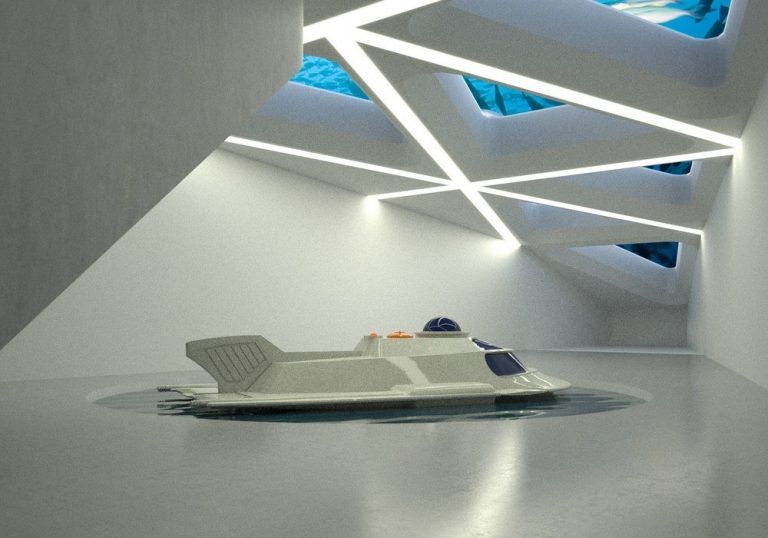320Dubai Maritime Museum & Research Centre
Relating to both the sea and the city and in a constant dialogue between them, the building is an extension of the city to the sea and vice-versa. Conceived as a continuation and a transition through the wide public space, the building dives into the ocean and merges with it. It develops as a triangular sharp form, which concentrates the public routes to the museum, through an inviting shape that draws visitors to the entrance and distributes them to the interior.
The museum itself is an artifact, an artificial underwater environment organized under an immense glass roof that has been designed in order to give the maximum view of the ocean and intensify the feeling of diving into the seabed. By optimizing the maritime-themed environment and combining it with breathtaking underwater views, the museum reflects in a sincere manner its function.
The building is simultaneously a vessel that supports the idea of the journey. Interior space is organized through cascading platforms that develop in a successive and continuous manner, allowing visitors to have a panoramic and clear overview of the whole museum’s interior, under a «water roof». Generous internal height allows the perception of wide interior views and the display of artifacts of significant scale. Inside this wide space, the collection is divided into entities such as marine life, marine technology, supervisory material, interactive educational and experimental exhibits, aquariums, video projections and digital representations as well as underwater photography exhibitions.
Presentation of the museum’s collection happens in a direct relation with the ocean’s setting since the artificial manmade space is fully integrated into the natural underwater environment. The experience evokes a descent to the depths of the ocean. Natural light enters the building through the glass ceiling and as the building sinks, space narrows, and the light’s intensity gradually reduces, detaching the building from the surface and making it part of the ocean. Concentrative form leads to a chamber at the deepest part of the museum which allows visitors to experience the submergence environment through a travel around the museum with a submarine vessel.
Since seawater temperature is always lower than the ambient temperature, placement of the building underwater allows to minimize energy strain on the mechanical systems used for cooling. The overall organization follows a triangular grid, which defines the main morphological and functional aspects of both building and landscape. This grid organizes the roof cells that are supported by diamond shape structural cores. Required distribution of MEP equipment happens through the cores which also embody the main function of internal circulation. Circulation network is further organized by the pathways of staircases, ramps, and lifts that act as connection points between the different levels and guide the visitors through the exhibition levels.
People’s flow inside the building follows a specific pattern in a way that the circulation of public itself is intended to act as experiential content. The result is a deep relationality and interconnection of spaces that can help achieve an atmosphere of total continuity, like the vast environment of the sea.
The higher part of the inclined form hosts the hanging auditorium and restaurant that defines the entrance and extends the plaza to the sky. Access to these areas happens also through independent entrances from the 2 plaza levels in order for these to be able to function autonomously. The grid extends to the building’s exterior and organizes the patterns of the public space, by spreading its fragments in the landscape, creating the visitors’ pathways and defining recreation areas that have an unobstructed view of the ocean.
Project Info.
Architects : Niko Kapa
Location : Dubai, UAE
Year : 2016
Status : ongoing
Type : Museum
Photographs : Niko Kapa
Courtesy Of Studio Niko Kapa
Courtesy Of Studio Niko Kapa
Courtesy Of Studio Niko Kapa
Courtesy Of Studio Niko Kapa
Courtesy Of Studio Niko Kapa
Courtesy Of Studio Niko Kapa
Courtesy Of Studio Niko Kapa
Courtesy Of Studio Niko Kapa
Courtesy Of Studio Niko Kapa
Courtesy Of Studio Niko Kapa
Courtesy Of Studio Niko Kapa
Courtesy Of Studio Niko Kapa


